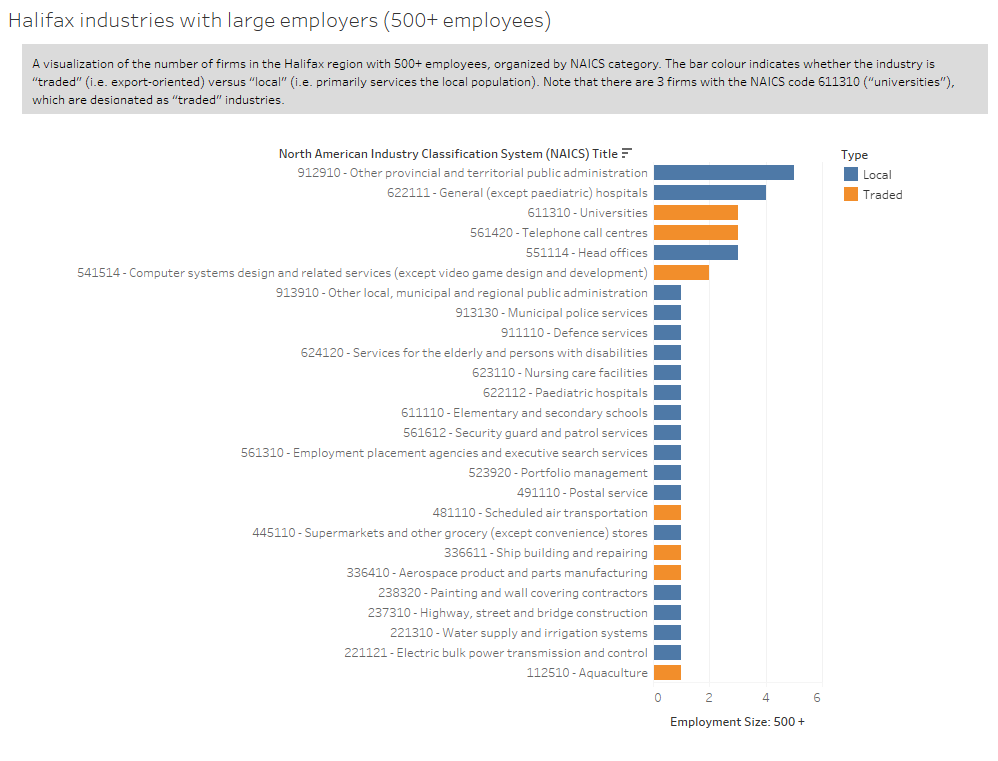As some of you in this network know, part-time instructors and teaching assistants are currently on strike at Dalhousie. As I reflect on the financial and practical struggles that many education workers face, my has wandered to an even larger issue with Canadian universities: their transition towards privatization.
Yesterday, I was digging into a very interesting open dataset concerning industry specializations for the regions of Nova Scotia for my undergrad data class. In this dataset, various industries are organized into categories (e.g. manufacturing, education) and are labelled according to whether they are local (i.e., service the local economy only) or traded (i.e., goods and services export). When considering just the Halifax region, there are 3 employers with over 500 employees under the category of “education” as of June 2021. I made a fun graph in Tableau which summarizes this analysis of our large employers.

While I was pleased to see our city’s two large universities (Dalhousie and Saint Mary’s) and presumably one community college (NSCC) represented in the data, I was surprised to learn that the universities were considered a “traded” industry. Aren’t they supposed to be public institutions, like schools and hospitals?
I am not an economist and cannot speak for how the government accounts for its industries. However, the fact that universities are considered a traded industry is quite telling. Our government sees our universities as an export industry, yet Canada’s large research universities are also considered public institutions, designed to administer public goods. Which are they?
A public institution that is also an export industry is an extremely strange thing. As a society, we decided that these deserve financial support due to the benefits that they give to the university stakeholders, and consequently to each other. Yet, we expect that the stakeholders of universities pay more and more out of pocket. Dalhousie has continued to steadily increase tuition, having approved 3% increase again this year, with much steeper increases for undergraduate international students.
I don’t have a big personal stake on the privatization conversation any longer. I think there are interesting conversations to be had about whether the beneficiaries of the goods should foot more of the costs, as long as we expand programs to support students who have financial needs. I also don’t necessarily think that there is an easy answer here.
However, I do think that Canadians need to have a hard conversation that we are simply not having. We need to face the fact that our universities are no longer public institutions, or at very least are not acting like them. It’s now time to figure out whether this is what we really want.
